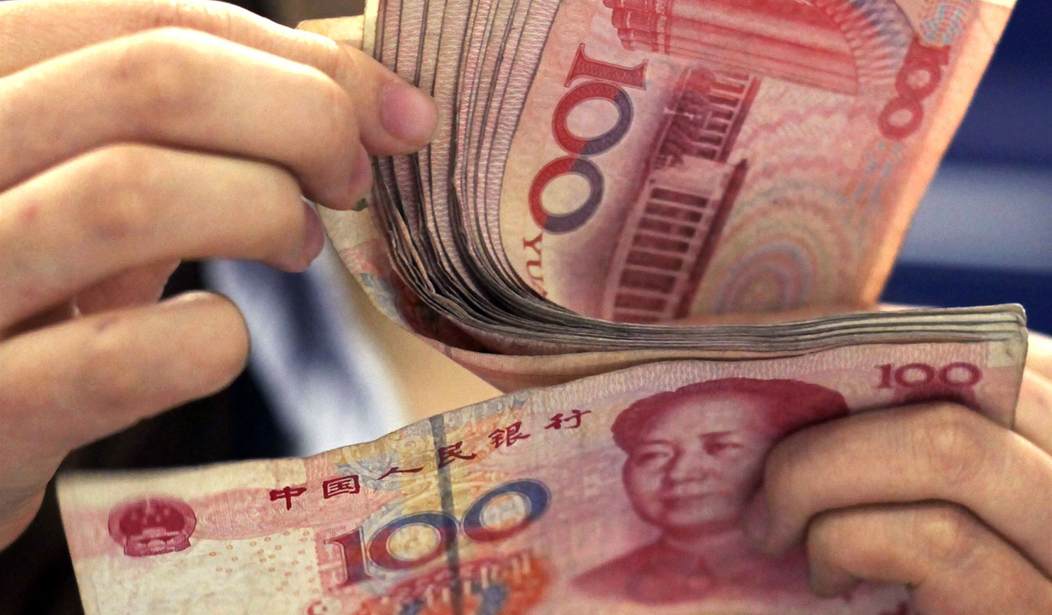China's property market continues to struggle and the surge of public consumption that was supposed to help keep the economy growing isn't happening as planned. Instead it looks like things are slowing down both this year and next year. Yesterday the investment bank UBS Group AG downgraded its forecast for China.
With China’s economic momentum subdued since March amid the real estate downturn and a tight fiscal policy stance, the investment bank now expects gross domestic product to expand 4.6% in 2024, down from an earlier estimate of 4.9%. For next year, UBS sees growth at 4%, down from 4.6% previously.
The problem driving this is still the housing market. For many years, a construction boom kept China's economy going. But the collapse of one of the country's largest builders, Evergrande, revealed the industry had been operating like a Ponzi scheme, with the money from new buyers used to complete apartments that had been sold previously. Once the downturn started, people couldn't get their money back or take possession of apartments that hadn't been built. One surprising outcome was a surge in public protests in a country where protests are rare.
Cases of dissent increased 18% in the second quarter compared to the same period last year in figures documented by the China Dissent Monitor at Freedom House, a US advocacy group. The majority of events linked to economic issues, according to a report published Wednesday.
Of those events, 44% related to labor and 21% involved aggrieved homeowners, the report noted.
Those protests are likely to continue because, for the moment, there is no sign the housing market is improving. On the contrary, the June figures showed the worst decline yet.
Despite the introduction of measures, which included reducing down-payment requirements in some places, getting rid of the floor of mortgage rates and easing purchase restrictions, "there's still no evidence that these measures are doing anything near enough to stabilize the market," David Lubin, the Michael Klein Senior Research Fellow in the Global Economy and Finance Programme at Chatham House think tank, told Newsweek.
"It doesn't feel like there's been any real improvement in the real estate sector in China," Lubin said. "In June, the total 70-city average indicator of property prices declined by 7.9 percent year-on-year. It was the biggest decline in annual terms on record."
China's plan to get around this problem was to have the economy pivot toward more consumption of consumer goods, thereby making the economy less dependent on the housing market. That's a good plan for the long run but in the near term it doesn't seem to be going very well.
In the latest warning to global markets on the health of the Chinese economy, Temu-owner PDD Holdings Inc. on Monday surprised investors with an unusually gloomy outlook. The e-commerce firm, which became a market darling with low-priced goods that helped propel business during China’s economic downturn, also reported revenue that missed estimates. During a post-earnings briefing, CEO Chen Lei mentioned at least eight times that revenue and profits must “inevitably” decline as economic growth slows...
“Chinese e-commerce companies have run into a problem that even fierce price cutting won’t solve anymore — a weak consumer,” Bloomberg Economics’ Chang Shu and Eric Zhu wrote. “From a macroeconomic perspective, the plunge in PDD shares makes an emphatic point — slowing income gains and damaged confidence are depressing consumption.”
And here's another sign that Chinese consumers are pulling back. After it's biggest year ever last year, Chinese movie ticket sales have slumped dramatically.
Movie ticket sales in China have generated more than $1.5 billion so far this summer, a little more than half of last year's record total of $2.89 billion, according to China’s Film Data Information Network, an institution directly under the Central Propaganda Department...
Some would-be moviegoers explained why they are staying home this summer.
One posted on social media: "The impact from last year's economic downturn officially appeared this year. Everyone thinks 40-80 yuan ($5-$11) per ticket is expensive."
The NY Times has a story today about Chinese venture capitalists who are flocking to California. Many of them are closing up shop in China for good because they don't see any much of a future there for innovation and capitalism.
With China’s economy in a lasting slump, investors and entrepreneurs are seeking the next China. They feel unwelcome by their government, which in recent years has sent an ominous message by clamping down on private companies...
The first thing one of them said to me when we met in Palo Alto was that her career in China was finished and that she was depressed. She had not made a single deal in nearly three years...
A third person, who relocated to Silicon Valley this year, was the most determined to settle down. He said he was selling his investments or dissolving his companies in China. He no longer feels safe there, he said, because the government jailed entrepreneurs or imposed sometimes huge fines on private enterprises.
Xi Jinping appears to be a true believer in communism. There's not strategic advantage to his crackdown on big business in China, it's mostly ideological. The result is that he's driving the real capitalists away. The impact of those choices may not be visible immediately but over time the drain of talent is going to cost China. At a moment when the economy is struggling and the country is at the start of a long-term population slide, it should be opening up and liberalizing. But Xi clearly wants to be seen as the next Mao and if he's not careful he will be.








Join the conversation as a VIP Member